Brewer Lake Campground
Brewer Lake Campground: A Relaxed Outdoor Getaway in North Dakota

by Robert Taller
I’ve always believed that the best kind of traveling doesn’t require a passport or a five-star hotel. Sometimes, all you need is a tent, a lake, and the open sky. Brewer Lake Campground in Erie, North Dakota, was one of those places that caught me by surprise. I stumbled upon it during a summer road trip across the northern Midwest, and instead of a quick overnight stop, I ended up staying a weekend—and then some.
It’s not flashy, and that’s the point. Brewer Lake is about slowing down. It’s where mornings begin with the sound of birds and the light tapping of water against a boat dock, and where evenings are best spent around a fire pit under an enormous prairie sky. If you’re planning a camping trip in North Dakota, this place deserves a spot on your itinerary.
Overview of Brewer Lake Campground
Location and Accessibility
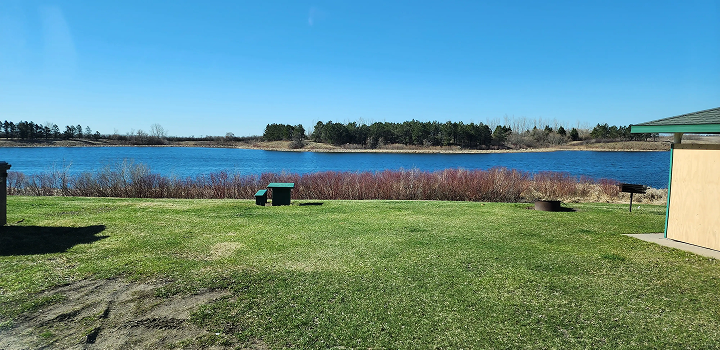
Brewer Lake Campground is situated in Cass County, about 15 miles northwest of Erie, North Dakota. It’s tucked away just far enough from any main highway to feel remote, but still easily reachable by car. The drive in is peaceful, passing through farmland and quiet country roads that seem to stretch endlessly. Lake Bonnet Camping Is Spectacular, Then You Should Visit North Dakota.
When I first visited, I came from Fargo—less than an hour’s drive away—and found the route to be smooth and well-marked. Once you reach the lake, signage leads you directly to the campground entrance. Parking is free and straightforward, and I appreciated that even the larger RV setups had plenty of space to maneuver.
Whether you’re arriving in a compact car with a tent in the trunk or towing a camper, the campground is easily accessible and beginner-friendly. No rough terrain, no off-road conditions—just wide gravel roads and open spaces.
Campground Highlights
The first thing that struck me about Brewer Lake wasn’t the facilities or the campsites themselves—it was the sense of quiet. Even when the campground was half-full, it didn’t feel crowded. There’s a certain stillness here, probably thanks to the surrounding farmland and open prairie wind that seems to hush everything down.
The lake itself is modest in size but full of character. Locals come here to fish, paddle, and soak in the sun. The water is clear, the shoreline gentle, and the dock well-maintained. There’s even a boat ramp, which is rare for campgrounds of this scale. On clear days, you can see the reflection of clouds mirrored almost perfectly on the water’s surface.
Families, couples, and solo campers all share the space comfortably. It’s the kind of campground where neighbors wave hello but also give you your space. Fire rings and picnic tables are provided at each site, and there’s enough distance between plots to feel like you’ve got your own slice of land.
Campsite Options and Amenities
Tent Camping Sites
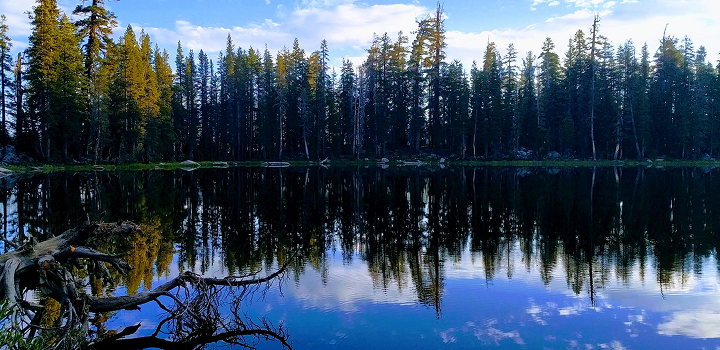
For tent campers like me, Brewer Lake offers exactly what you’d hope for: flat, grassy areas surrounded by enough natural cover to feel private but not isolated. I found my site to be well-drained (even after a night of rain), and it had a nice mix of shade and sunlight throughout the day.
The tent sites don’t feel “piled together” as they sometimes do in overbooked parks. Here, there’s breathing room. I had space to pitch a two-person tent, set up a folding table, and string up a hammock between two trees. It felt like the kind of place designed for people who actually love camping.
RV Camping Facilities
If you’re traveling with a camper or RV, Brewer Lake has you covered with several designated sites offering full hookups. I spoke with a couple from Bismarck who had been parking their 30-foot trailer here every summer for three years, and they praised the campground’s flat surfaces and reliable power sources.
The RV spots are laid out with plenty of turning space, and the hookups are modern and well-maintained. Water pressure was steady, and the electrical posts looked recently updated. There’s no fancy clubhouse or resort-style luxury here, but it’s clean, functional, and refreshingly straightforward.
Group Camping Areas
For larger groups—family reunions, scout troops, or just a bunch of friends doing a weekend together—there are designated group areas that can be reserved in advance. These are more open, with multiple fire rings and large grassy patches that can accommodate several tents or a mix of tents and campers.
I once joined a group site for a local charity weekend, and the layout made it easy to socialize while still keeping things orderly. There’s enough space to set up shared cooking stations or games, and nearby trees offer both shade and structure if you’re hanging tarps or hammocks.
Available Amenities
Restrooms and Showers
The bathhouse at Brewer Lake was a pleasant surprise. It’s basic in appearance but well-maintained and cleaned regularly. The restrooms are stocked and functional, with flushing toilets and good lighting, even after dark. As for the showers—they’re hot, and the water stays on without needing to hold a button or deal with weird temperature swings.
For a county-run campground, this level of cleanliness stood out. I never had to wait in line, and I always left feeling refreshed.
Electrical and Water Hookups
At RV-designated sites, electrical and water hookups are easily accessible. Power options typically include 30-amp service, and the water lines are stable and well-distributed. I didn’t use hookups myself, but several fellow campers told me the connections were dependable—even during peak weekend usage.
Picnic Areas and Fire Pits
Each campsite comes with its own fire ring and picnic table, which may sound standard, but here they’re placed thoughtfully. My table was shaded under a cottonwood tree, and the fire ring was far enough from my tent to feel safe but close enough to keep warm on a chilly night.
There are also communal picnic areas near the beach and playground, perfect for day visitors or group gatherings. I once saw a Sunday brunch spread out on one of the tables, complete with thermoses of coffee and pancakes on camp stoves—it smelled amazing. Bring your own food, there are no establishments here like in Lake George`s
Dump Station and Sanitary Services
There’s a clearly marked dump station near the campground exit, and from what I observed, it’s well-kept and easy to use. Water is available for tank rinsing, and signage makes the process straightforward for first-timers. I spoke with a retired couple who called it “one of the easiest stops in the state,” which I took as high praise.
Recreational Activities at Brewer Lake
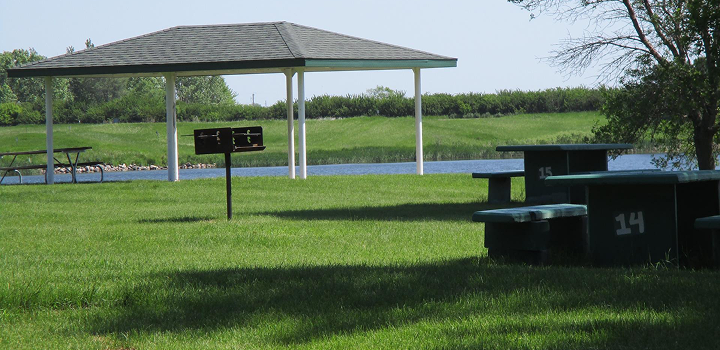
When you set up camp at Brewer Lake, you’re not just reserving a place to sleep—you’re unlocking a full day of outdoor activity. Whether your style leans more toward peaceful fishing or active paddling, this campground has a rhythm that encourages you to spend your time outside, enjoying what’s around you.
Swimming and Beach Access
On warm days, the small sandy beach at Brewer Lake becomes a magnet for families and solo travelers alike. It’s not a massive resort-style shoreline, but it’s soft underfoot, clean, and surprisingly well-kept. The water gradually deepens, making it safe for kids and non-swimmers who just want to wade or float near the shore.
I took a swim there one July afternoon, and the water was just cool enough to be refreshing without being chilly. There are no lifeguards on duty, so swimmers need to use common sense, but the community atmosphere makes it feel safe. There are changing areas nearby, and I often saw families arrive with folding chairs and stay for hours.
Fishing Opportunities
Fishing is one of the main draws at Brewer Lake, and you’ll notice that even before you unpack—anglers are often out on the dock before sunrise. The lake is stocked with perch, walleye, and northern pike, and I met several locals who’ve been fishing here for decades. One guy told me he caught a 28-inch pike “just last month,” and judging by the glint in his eye, I believed him.
There’s a designated fish cleaning station near the dock—simple but useful—and you can cast from shore, off the dock, or from a boat. I tried my hand at shore fishing just after dinner one evening and was rewarded with a quiet sunset and a very respectable walleye.
Boating and Kayaking
Brewer Lake is small enough to feel manageable but big enough to make boating worth your time. There’s a concrete boat ramp near the parking area that’s open to campers and day visitors alike. It’s easy to launch a fishing boat, pontoon, or kayak, and I saw all three out on the water during my stay.
I brought my inflatable kayak and spent a lazy morning drifting along the shoreline, watching birds and catching glimpses of turtles on partially submerged logs. There’s something deeply relaxing about being out there without a motor—just the quiet splash of a paddle and the occasional fish jumping nearby.
Playgrounds and Sports Courts
Families with kids will appreciate the modest but well-maintained playground located near the central picnic area. It has enough swings, slides, and climbing structures to keep kids occupied while adults prep meals or simply relax nearby. The layout is safe and visible, so it’s easy to supervise without hovering.
There’s also a volleyball net set up on a grassy patch nearby, and during my visit, I saw a spontaneous pickup game that ended with strangers laughing like old friends. That’s the kind of energy Brewer Lake seems to attract—welcoming, unforced, and genuine.
Hiking and Nature Trails
While Brewer Lake doesn’t offer rugged backcountry hikes, it does have a few informal nature trails that loop around the lake and nearby woods. These are flat and easy, making them ideal for morning walks, birdwatching, or introducing kids to outdoor exploration.
I took an early morning walk around one of these loops with my travel journal in hand, stopping to sketch a heron I spotted by the reeds. No pressure, no rush—just the sound of the breeze and the occasional rustle of something in the brush. It’s that kind of campground.
Reservation Information and Policies
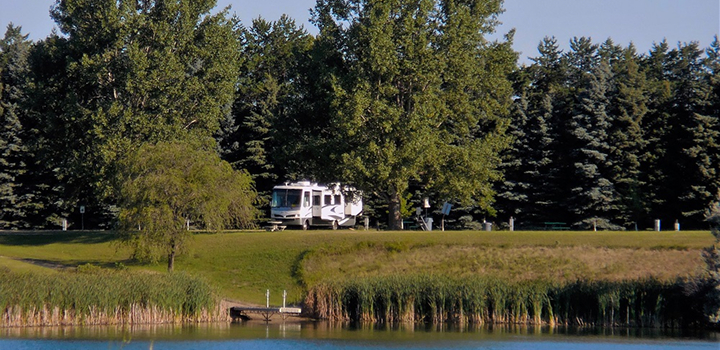
Planning ahead at Brewer Lake is simple, but it helps to know how the system works—especially during peak weekends or holiday stretches when the campground fills up faster than you’d think. During my own trip, I made a reservation on a whim midweek, but I met others who’d been planning theirs for months. Either way, getting a spot here is pretty straightforward once you know what to expect.
How to Make a Reservation
Reservations for Brewer Lake Campground are managed by Cass County, and the process is refreshingly uncomplicated. You can reserve a site online through the county’s official parks portal or by calling the administration office during business hours. I booked my site with just a few clicks on the website—it showed me a map of available sites, let me select the dates, and confirm payment all in under ten minutes.
Walk-in availability is possible, especially during weekdays or in early or late season. That said, I always recommend reserving in advance if you’re visiting in July or August. Group sites, in particular, should be booked at least a couple of weeks out.
Fees and Payment Options
One of the best parts of Brewer Lake is its affordability. Campsites here are priced fairly, especially considering the amenities and location. When I last visited, tent sites were around $20 per night, with RV sites slightly higher depending on whether full hookups were required.
Here’s a simple breakdown of fees based on the most recent season:
| Site Type | Average Nightly Fee | Hookups Included |
| Tent Site | $20 | No |
| RV Site (Basic) | $25 | Water only |
| RV Site (Full) | $30 | Water & Electric |
| Group Area | Varies | Must reserve |
Payments can be made online with major credit cards or on-site at the campground kiosk if you’re doing walk-in. There’s no cash-only rule here, which makes things easier for travelers like me who prefer plastic.
Cancellation and Refund Policies
Life happens, and thankfully the county understands that. Cancellations made at least 48 hours in advance usually receive a full refund, minus a small processing fee. I had to adjust my dates once due to a flat tire en route, and the staff were accommodating as long as I gave enough notice.
Same-day cancellations typically forfeit the first night’s fee, so it’s best to notify them as early as possible. For group bookings, the cancellation window might be longer—check the specific terms when booking larger areas.
Campground Rules and Regulations
Brewer Lake Campground operates with common-sense rules that make the experience better for everyone. Quiet hours are observed from 10:00 p.m. to 7:00 a.m., and I found that most campers respected this. It’s not the kind of place where people party all night—it’s more about unwinding under the stars.
Fires are allowed only in designated rings, and firewood should be purchased locally to prevent invasive species. Pets are welcome but must be leashed, and campers are expected to clean up after them. During my stay, I saw both campers and hosts take these rules seriously, and it helped keep the campground clean and peaceful.
Alcohol is allowed in moderation at individual sites, but not in communal areas like the beach or playground. As always, it’s important to respect others and pack out whatever you bring in. The campground staff make rounds a couple of times a day, and they’re friendly but attentive—they’re there to help, not hassle.
Seasonal Considerations
Camping at Brewer Lake changes with the seasons, and part of the joy is discovering how different the lake feels in spring compared to late summer or early fall. I’ve camped here during multiple parts of the year, and I’ve learned there’s no bad time to visit—just different kinds of good.
Best Times to Visit
For first-time visitors, late spring through early fall is the ideal window. From May to September, the campground is fully open, and the weather is cooperative more often than not. June brings blooming wildflowers, July offers the warmest water for swimming, and September paints the surrounding trees in shades of gold and rust.
If you’re looking for warm days and cool nights, I recommend mid-to-late June. Crowds are manageable, bugs haven’t fully arrived, and the lake starts warming up just enough for comfortable swimming.
July and early August are the busiest times, especially around national holidays. That’s when the campground is at its most lively—families, anglers, and kayakers all sharing the space in good spirits. I enjoy the energy of that season, but if you’re after peace and quiet, shoulder weeks in May or mid-September are your best bet.
Weather Patterns and Climate
North Dakota’s weather is famously changeable, and Brewer Lake is no exception. Summer days can reach the high 80s°F (around 30°C), but evenings often dip into the 50s (10–15°C). Pack layers—even in July.
Rainstorms here tend to roll in fast and clear out just as quickly. One night in August, I woke to the sound of thunder rumbling across the prairie, only to have sunshine back by breakfast. The key is being prepared. I always bring a rainfly for my tent and an extra tarp just in case.
Mosquitoes can be a nuisance from June through August, particularly around dusk, so I highly recommend bug spray or even a screen tent if you’re planning to stay up late by the fire. Fall brings fewer bugs and clearer skies, perfect for stargazing.
Seasonal Events and Activities
While Brewer Lake doesn’t host large-scale events, the surrounding area embraces the seasons with small-town charm. In the summer, nearby towns like Erie and Casselton often hold farmers markets, music in the park, and fishing tournaments. I once stumbled upon a lakeside pancake breakfast fundraiser and ended up staying long enough to join a game of bean bag toss with a group of locals.
If you’re visiting in late spring or early fall, you might also catch migrating birds along the shoreline—a quiet, magical experience for anyone into birding or photography. There’s something special about watching nature move through its own schedule, and Brewer Lake is a peaceful place to witness it.
Wildlife and Natural Surroundings
Brewer Lake may be modest in size, but it’s rich in natural life. I’ve always found that the more time I spend outdoors, the more I begin to notice the subtleties—how the reeds sway differently in the wind, or how the same tree casts a new shadow as the sun moves across the sky. This campground offers a quiet invitation to tune into the natural world, and it’s a gift worth accepting.
Flora and Fauna
The area surrounding Brewer Lake is a blend of open prairie, small forested patches, and wetland edge, making it surprisingly biodiverse. During my early spring visit, I noticed wild lupine pushing up along the gravel paths, and later in the summer, sunflowers and goldenrod painted the edges of the campground in warm tones.
Animals are part of the everyday backdrop here. You’ll hear frogs at night, see rabbits dart across open spaces at dusk, and if you’re patient enough, you might spot a white-tailed deer grazing beyond the treeline. On one morning walk, I encountered a family of turtles sunbathing on a log near the shore—a peaceful reminder of how undisturbed the ecosystem feels. Lake Bonney is also rich in flora and fauna.
Bird Watching Opportunities
Brewer Lake is a small but rewarding location for birdwatchers, especially during spring and fall migrations. I’ve seen pelicans gliding silently across the water, red-winged blackbirds perched like sentinels along cattails, and tree swallows swooping in elegant arcs over the lake surface.
What makes it enjoyable even for beginners is the accessibility—you don’t need to hike into a remote preserve to catch great sightings. Just grab a folding chair, a pair of binoculars, and settle in near the dock or along one of the trails. Morning and late afternoon are prime times, and even if you’re not a birder by habit, it’s hard not to be drawn into the rhythm of wings and song.
How to Minimize Your Environmental Impact While Camping
I always say: the best campers are invisible. You come, you enjoy, and you leave no trace. Brewer Lake doesn’t have rangers patrolling every hour, which means the responsibility to preserve the place rests on all of us who use it.
I carry out everything I bring in—including tiny things like bread twist ties and tea bags. I use biodegradable soap and fill water containers ahead of time to avoid wasting communal tap resources. I also avoid gathering firewood from the area, bringing my own to prevent disrupting the local insect and fungal ecosystems.
Trash bins are available, but if they’re full, I take my garbage with me. That’s not just being considerate—it’s what keeps places like Brewer Lake looking like Brewer Lake. I encourage fellow campers to think of themselves not as guests but as stewards. This place gives so much—it only asks for care in return.
Tips for a Successful Camping Experience
Camping at Brewer Lake doesn’t require expert skills, but it rewards thoughtful preparation. Over time, I’ve picked up a few small tricks—most from locals—that have made my stays easier, warmer, and just more enjoyable.
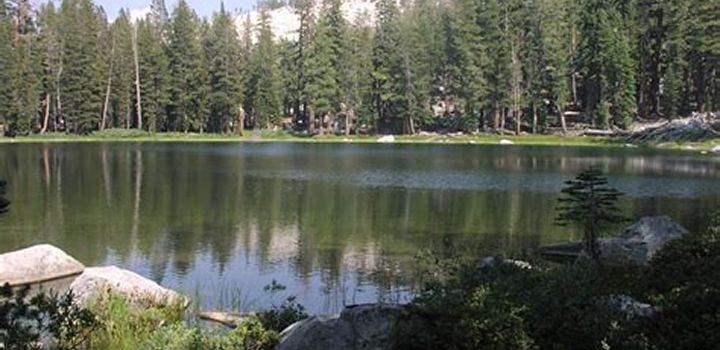
What Locals Bring That Most Tourists Forget
There are a few items I’ve learned to pack after chatting with North Dakota regulars:
First, a ground tarp. The soil here can stay damp for longer than you expect, especially after rain, and a tarp beneath your tent keeps things dry and warmer at night.
Second, a screened shelter. Bugs aren’t always bad, but during some weeks in July, they show up in force. Locals often set up a simple screen house over their picnic table—not just for meals, but for reading, playing cards, or even just relaxing with a view.
Third, backup lighting. While there are some light posts near shared areas, individual sites get dark—very dark. A lantern or extra headlamp can turn an after-sunset cleanup or trip to the restroom from a hassle into a breeze.
Lastly, I bring a printed map of the area. Cell reception exists, but it’s not always reliable. Having directions, trail notes, or emergency contact numbers on paper gives peace of mind.
15+ Frequently Asked Questions (FAQ)
1. Do I need a permit to fish at Brewer Lake?
Yes, a valid North Dakota fishing license is required. You can purchase one online or from local vendors before arriving.
2. Are there designated quiet hours?
Yes, quiet hours are typically enforced from 10:00 p.m. to 7:00 a.m. to ensure a peaceful environment for all campers.
3. Can I bring my dog to the campground?
Yes, pets are welcome but must be kept on a leash. Owners are expected to clean up after them at all times.
4. Is firewood available on-site?
Firewood is not always sold on-site. It’s best to bring your own or buy locally from nearby gas stations or stores.
5. Can I swim anywhere in the lake?
Swimming is allowed near the beach area. There are no lifeguards, so swim at your own risk and supervise children closely.
6. Are generators allowed?
Yes, but their use is restricted during quiet hours. Be considerate of noise levels during the day as well.
7. Is there a store or shop nearby?
There is no general store within the campground. The closest supplies are in Erie or Casselton, about a 15–20 minute drive away.
8. Do campsites have shade?
Some sites offer partial shade, especially near tree lines, while others are more open. Check the map or call ahead for suggestions.
9. Can I arrive late at night?
Yes, but late arrivals should be respectful of others. Set up quietly and check in or notify staff the next morning if required.
10. Are alcohol or glass bottles allowed?
Alcohol is allowed at campsites but not in communal areas. Glass containers are discouraged due to safety concerns.
11. What type of fish can I catch here?
Anglers often catch perch, walleye, and northern pike. Seasonal conditions can affect which species are most active.
12. Can I reserve a specific campsite?
Yes, when booking online you can often select a specific site based on availability and site maps.
13. Is there cellphone coverage at Brewer Lake?
Cell service is available for most major providers, though reception may vary depending on your exact location within the park.
14. Are there activities for kids?
Yes, the campground has a playground and open space for games. The shallow beach area is also popular with families.
15. Do I need to check in upon arrival?
For online reservations, no formal check-in is required unless otherwise noted. Walk-ins may need to register at the kiosk.



Post Comment